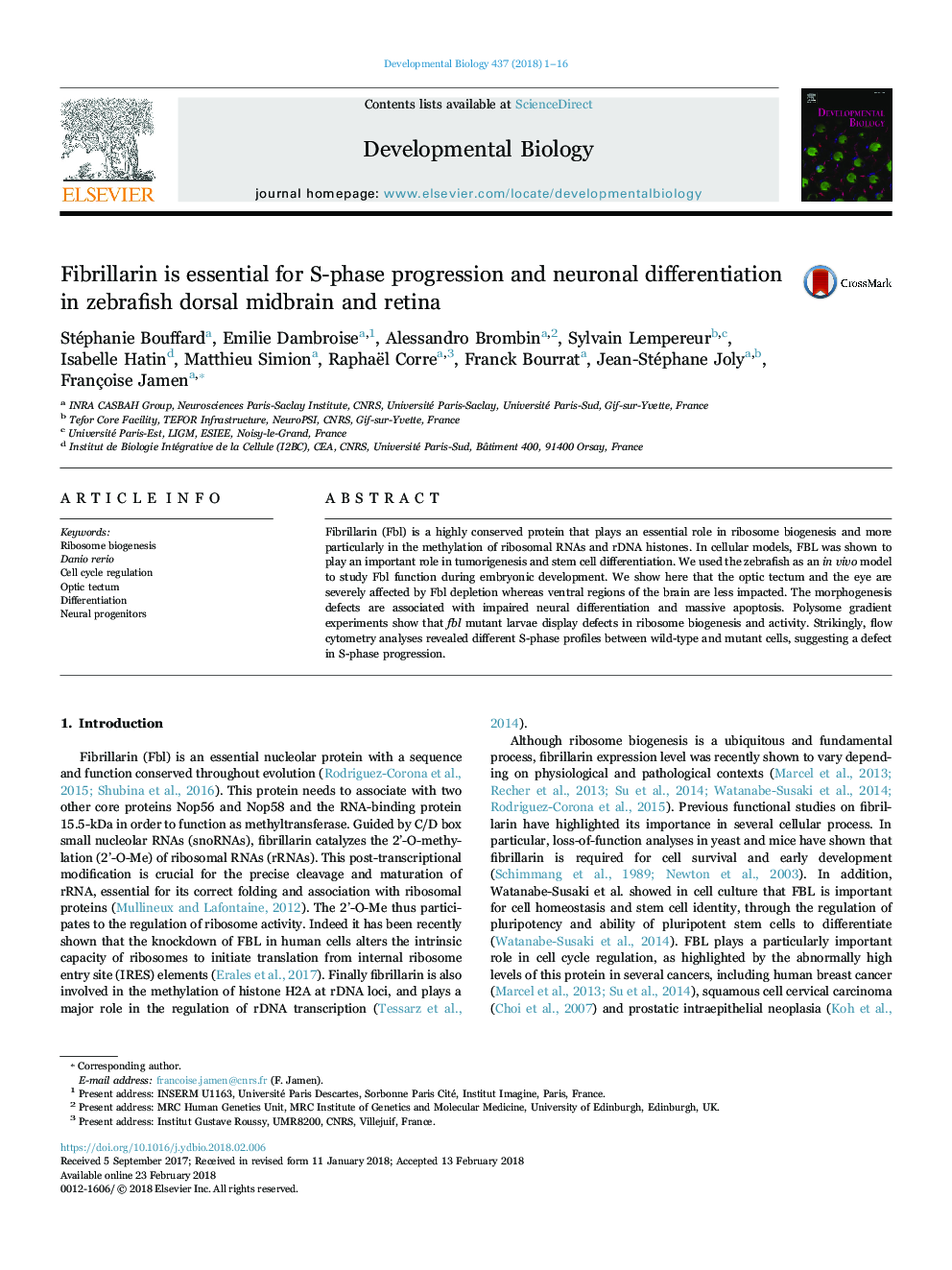| Article ID | Journal | Published Year | Pages | File Type |
|---|---|---|---|---|
| 8467349 | Developmental Biology | 2018 | 16 Pages |
Abstract
Fibrillarin (Fbl) is a highly conserved protein that plays an essential role in ribosome biogenesis and more particularly in the methylation of ribosomal RNAs and rDNA histones. In cellular models, FBL was shown to play an important role in tumorigenesis and stem cell differentiation. We used the zebrafish as an in vivo model to study Fbl function during embryonic development. We show here that the optic tectum and the eye are severely affected by Fbl depletion whereas ventral regions of the brain are less impacted. The morphogenesis defects are associated with impaired neural differentiation and massive apoptosis. Polysome gradient experiments show that fbl mutant larvae display defects in ribosome biogenesis and activity. Strikingly, flow cytometry analyses revealed different S-phase profiles between wild-type and mutant cells, suggesting a defect in S-phase progression.
Keywords
Related Topics
Life Sciences
Biochemistry, Genetics and Molecular Biology
Cell Biology
Authors
Stéphanie Bouffard, Emilie Dambroise, Alessandro Brombin, Sylvain Lempereur, Isabelle Hatin, Matthieu Simion, Raphaël Corre, Franck Bourrat, Jean-Stéphane Joly, Françoise Jamen,
